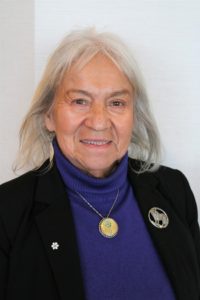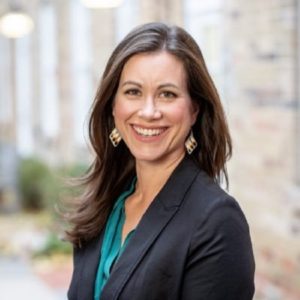Strong Anishinaabekwe offer thoughts during Women In Leadership Panel

By Sam Laskaris
PETERBOROUGH – Jeannette Corbiere Lavell has been an advocate of women’s rights for more than half a century now.
Corbiere Lavell, Anishinabek Nation’s Citizenship Commissioner, began her advocacy work back in 1970 after she lost her status by marrying a non-Indigenous man.
During her career, Corbiere Lavell, a member of Wiikwemkoong Unceded Territory, was the president of the Native Women’s Association of Canada and the co-founder and president of the Ontario Native Women’s Association.
So, when she speaks, people listen closely to her words. Such was the case recently when Corbiere Lavell was on the Women In Leadership Panel at the 46th Annual Elders & Traditional Peoples Gathering.
The event, held virtually, was hosted by the First Peoples House of Learning and the Chanie Wenjack School for Indigenous Studies at Peterborough’s Trent University.
Corbiere Lavell said her work allowed her to go into many Indigenous communities in Ontario and get feedback about how people feel about who they are, what it means, and why it is important.
“What I heard was that our people, especially the ones who have been ostracized or in my situation we lost our status, or they became part of the forces, or they became academics, all these people were excluded by the Government of Canada Indian Affairs,” she said. “So, it was part of their overall plan to eliminate this. Basically, it was genocide.”
Corbiere Lavell said it was often a gruelling ordeal hearing stories from others.
“Realizing and hearing those stories – it was heartbreaking,” she said. “But we came to an understanding that our people are out there and they know that they are connected to the Anishinaabe peoples. They know they have those connections and ties to their ancestors.”

Tabatha Bull, a Nipissing First Nation member who is now the president and CEO of the Canadian Council for Aboriginal Business, was also on the Women In Leadership Panel.
Bull was asked not only what inspired her but also what the expectations of her are.
“In my 14-year-old self, I probably didn’t feel really inspired to go into engineering,” she said. “I probably really did it because I liked math and figured it was a way for me to be able to create change… I went into electrical engineering with a plan to support Indigenous communities and my own community on energy projects and to be that bridge between communities and energy sector and telecommunications sector.”
Bull spent 15 years in the energy sector.
“I was really always so inspired just by the resilience of our people, by the forgiveness of our people, and that real openness for our people in the communities that I worked for in that part of my career to try to continue and look for opportunities to work together and to resolve past grievances,” she said.
Bull has been CCAB’s president and CEO since March of 2020.
“Today, I’m inspired every day by Indigenous entrepreneurs and particularly Indigenous women entrepreneurs who I’ve really seen over the last two years come together, not for profit of their business but come together to try and understand how we can help each other,” she said.


